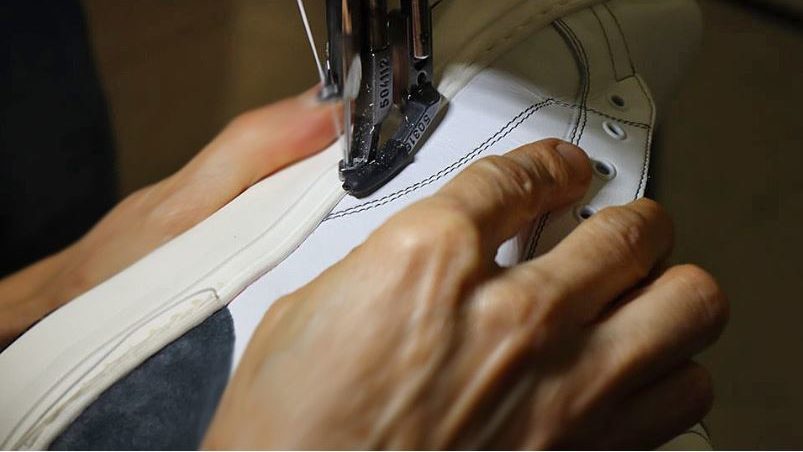Training is the concrete answer with which we can start a relaunch process of the Italian footwear and confirm its supremacy in the world”, this way Siro Badon, president of Assocalzaturifici, introduces a crucial theme for the shoe sector, a fundamental driving force of the Italian economy.
In political debates today there is much talk of relaunching work in Italy, especially for young people. Solutions do not seem easy to find, although in many sectors, especially in the manufacturing sector, the demand for new talents does not lack.
There would be work, for example, in the footwear sector! But what kind of job and what are the real needs of companies? Thanks to the contribution of the sector’s reference Association and of important companies that deal with components and finished products – we examine:
– the situation on the labour market among the companies in the footwear sector
– the importance of investing in training
– what profiles companies look for and which attitudes they require
– training courses to be taken to secure a position
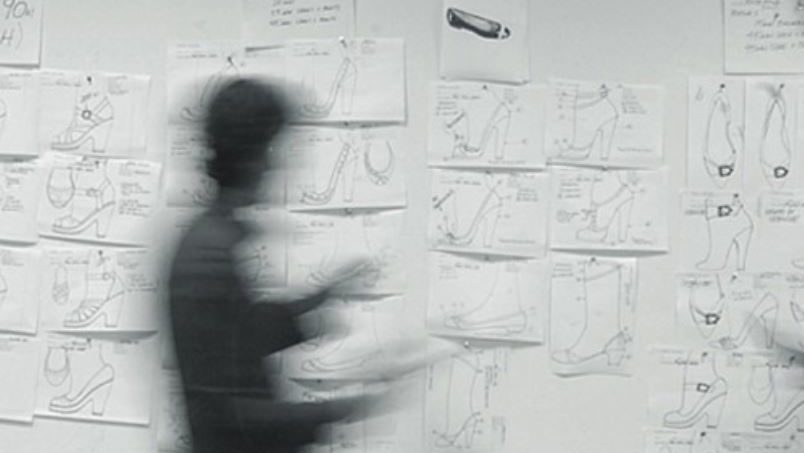
THE LABOUR MARKET IN THE FOOTWEAR SECTOR
Siro Badon, president of Assocalzaturifici and an important entrepreneur in the footwear sector, introduces the theme: “Footwear companies are going through a very delicate phase, marked by generational turnover, especially related to professional figures employed in the production sector. It is estimated that over the next three and five years, there will be a lack of 48,000 technicians in the entire fashion system.
There are fears that, despite being specialised, schools dealing with our sector will not be able to bridge this important gap, both in terms of numbers and know-how. To learn the trade well, in fact, the academic preparation is not sufficient. Young people who are part of the company need to be supported by experts to deeply understand the various dynamics. This requires a very strong investment, in time and economic resources, which companies often do not have the opportunity to implement”.
Helene Zago e Isabella Dibitonto, respectively human resources director and staff research and selection manager of RossiModa, a prestigious Venetian shoe factory, further explain the situation facing the world of footwear production: “The average age in our various production departments (from the cutting to the finishing procedure) is particularly high, which poses the urgent problem of generational turnover. We have been dealing with it for 6 years through our internal school that trains young aspirants with courses lasting 2 or 3 months, transmitting them both technical and theoretical know-how. We do train them alongside senior profiles who can complete their preparation in the field, in particular in the assembly and finishing sectors.
Through the collaboration with the Politecnico Calzaturiero and the Employment Agency Umana, and taking advantage of the FormaTemp formula, we also have activated a training course tailored to our needs (hemming, assembly and quality control) which allows us to work with 10 or 12 boys and girls, providing them afterwards with an internship. On average, one third of them gets finally hired”.
ARSUTORIA’s school experience is very similar and its director, Matteo Pasca says: “There are no young hemmers ready to enter the job market, as confirmed by the request of a shoe factory in the Parabiago district that decided to invest in a training course for 8 professional figures. So we set up a hemming laboratory at our headquarters in Milan and started a collaboration between the company (which prefers to remain anonymous) and a temporary agency. The agreement allowed 8 girls (at their first experience or in the process of professional reintegration) to follow a free training course that included frontal lessons and factory experience. The course, co-financed by the FormaTemp fund, led to the full recruitment of all participants».
Finally, it is again Siro Badon to bring up another problem: “Obviously, our sector offers many job opportunities, but it does not seem particularly attractive for new generations. It is therefore necessary to revive it, making it more interesting for both young people and their families by clearly explaining the many and advantageous job opportunities that the sector offers”.
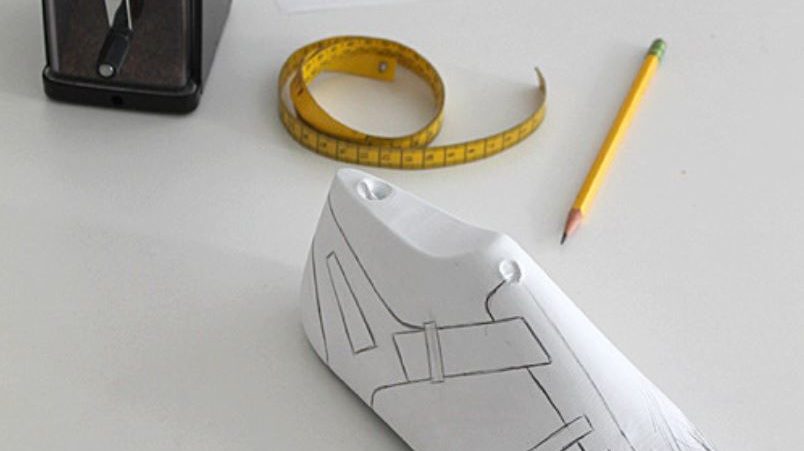
WHY IT IS IMPORTANT TO INVEST IN TRAINING
Silvia Paganini, co-titolare del Tacchificio Villa Cortese e Presidente del Gruppo Giovani di Confindustria Alto Milanese: explains it well: “As regards the world of footwear components (but the concept, we believe, is valid for the entire supply chain, ed.), the growth of big brands has led to an adaptation of the company structures. Now it is necessary to be well organised, by ever remaining flexible, providing careful attention to products and services. Through open innovation, the fusion with the entire supply chain and strong investments in research and development, we must place ourselves towards our customers not only as suppliers, but as partners and solution providers with the aim of anticipating their technical and commercial needs. It is clear that for such a complex job, continuous training is necessary both for those who already occupy positions in the world of work and for those who must enter it”.
Siro Badon reiterates the concept: “Assocalzaturifici is firmly convinced that investing in training and skills is highly strategic for the future of the sector. It is, in fact, essential to train new professional figures capable of innovating Made in Italy footwear companies by perfectly combining them with our tradition and the standards of excellence that characterise our production”.
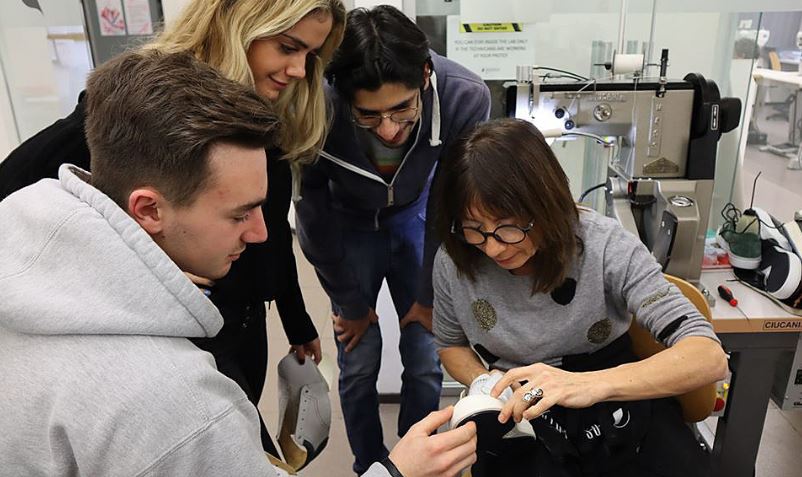
WHAT PROFILES AND ATTITUDES ARE REQUIRED
After listening to all the interlocutors, it seems clear that even though specific technical skills are important, also the so-called soft-skills are valuable for the companies in the footwear supply chain: those attitudes of curiosity, ability to learn and work in a group, in addition to the willingness to make ‘sacrifices’.
“Within our company – explains Silvia Paganini – technical figures are without any doubt our key professionals, the most difficult to find on the market. But, in the growing complexity dictated by the speed of adaptation to new technologies and the fragmentation of orders, technical skills are no longer enough: there is a need for creativity and the ability to work in teams, prerequisites for all innovation processes; there is a need for an attitude towards change, the only constant compared to to the volatility of skills, but also flexibility and curiosity”.
For Siro Badon “companies in the sector are looking for motivated, passionate young people who, above all, want to learn”.
RossiModa adds: “We are also looking for people without any experience. Motivation is what matters most to us. Specific expertise is provided afterwards. Another important aspect is to perfectly understand the expectations of the candidates (and in this sense employment agencies are fundamental to help us through a first selection) because it is crucial to weigh the real ambitions of young people: they must be calibrated and commensurate with the needs of the company. I explain why: training these people is a long-term investment, the results of which will be appreciated only after about 3 years. And it will still take some time to have, for example, good pre-assemblers. It is a bet that therefore implies a significant investment in resources, that’s why the initial selection must be particularly accurate”.
We also ask RossiModa’s managers about the characteristics that not only a production figure must have, but also a Product Manager: “For us it is a crucial role. Each of our client maisons is followed by a dedicated work group and the various product development offices must interpret the needs of the style offices within the various brands and then engineer the collections. 50% of our product managers come from the market (senior profiles) and the rest from an internal training course in which also all the assistants were involved. A very demanding job, that required 5 years. We selected profiles from the business world (mainly coming from the IUAV in Venice) or from experiences such as IED and Marangoni. People with a university background who did not necessarily have previous footwear knowledge”.
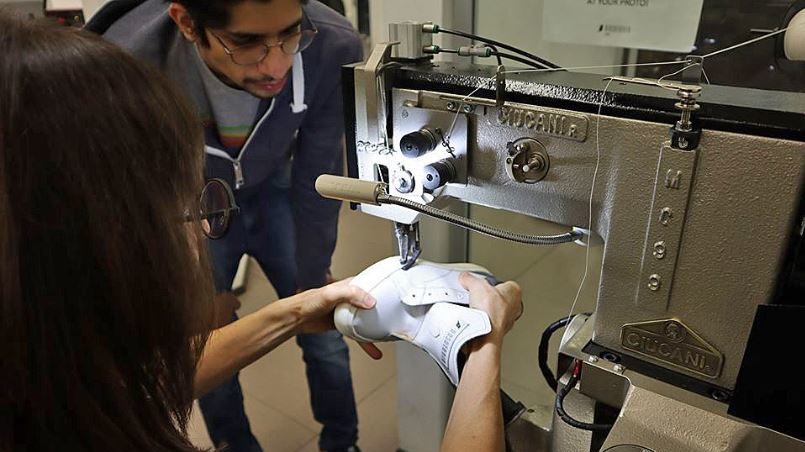
TRAINING COURSES
As President of Confindustria Alto Milanese’s Youth Group, Silvia Paganini highlights: “We strongly believe in cooperation with schools. Young students are the actors of the future, new entrepreneurs and new collaborators. We are convinced that it is essential to invest in them to ensure continuity and solidity for the future of our companies and Made in Italy.
Collaborating with ARSUTORIA school in numerous projects, for example, has allowed us to create awareness about the professionalism of the footwear sector and to support companies, by forming adequate technical profiles”. Also Assocalzaturifici expresses its satisfaction in the partnership with the Milanese institute: “The results achieved for the two IFTS projects ‘Product and process industrialisation technician for the footwear sector in Lombardy’ activated with ARSUTORIA school are definitely positive. Paths that led to well prepared and motivated students who, then, entered companies with mutual satisfaction.
Unfortunately, the IFTS formula presents two problems: it is subject to a tender and funding by the Lombardy Region and does, therefore, not provide continuity to the programme. Second, funding times do not allow for an adequate promotion of the initiative with the risk of not receiving sufficient adherences”.
It should be recalled that Arsutoria does not just train professional figures dedicated to production, but also those who work in the design or managerial field.
It serves the sector thanks to training financed by interprofessional funds, and provides short workshops shaped on business needs: from sales to office staff, human resources and so on. Or with ad hoc courses for those who want to launch their own footwear brand: 4 days during which you will learn how to deal with the design of the first collections and how to collaborate with factories. Intended for those who want to create their own footwear brand, producing them in Italy or Europe, and who want to avoid main mistakes caused by the lack of experience, in order to start efficiently and be competitive.
And since in recent years, sneakers have established themselves on the footwear market among the best reference products, capable of profoundly influencing the world of fashion and given that, today, there is no major brand that does not offer sneakers in its collections, ARSUTORIA school has decided to launch a brand new 4-week course to learn sneaker design, pattern making and prototyping.
For those who want to train as an all-round professional figure, able to enter the footwear industry with preparation, ARSUTORIA school offers a one-year intensive programme. A very practical approach through which it is possible to learn every aspect of the shoe production: from design to the creation of models, passing through a wide range of technical constructions for both women and men, from casual to elegant styles. And to deepen the knowledge of the materials, understanding their purchase logic.
The programme offers a double perspective on the footwear sector: innovation and tradition. Students learn the use of specific software for 2D and 3D modelling: they create a microfibre prototype designed with these tools and cut with cutting-edge machinery. Thus, they experience what it means to make a sample before starting the prototyping and production phase.
Students also have the opportunity to explore their creativity through the development of a collection, designing and creating a merchandising plan, thus enriching the basic portfolio for their footwear brand.
After acquiring technical skills, they closely work with Italian artisans, at the shoe workshop inside the school, creating their own pairs of shoes (from sneakers to pumps, from sandals to laced-up shoes).
A significant part of the programme is also dedicated to tutoring brand startups: how to work with factories and how to approach the first collections.
Organised visits to major companies in the sector, showrooms and specialised fairs complete the training, preparing students to embrace the footwear sector.
We end with Siro Badon’s words: “The work of us shoe makers is beautiful: it combines manual skills and creativity as well as offering very concrete possibilities of being part of one of the most prestigious Made in Italy sectors”.
